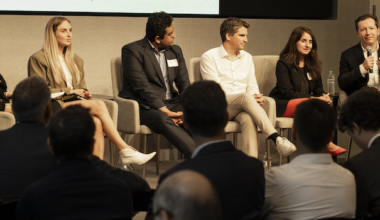According to the National Foundation for American Policy (NFAP), immigrants have started over half of America’s startup companies valued at $1 billion or more. Despite their success in the U.S., international tech entrepreneurs struggle to obtain visas. Various factors are at play when a visa application is processed, from the filing types and waiting periods to high levels of scrutiny. However, knowing how to play your cards can help.
Understand visa categories
Firstly, it’s essential to understand visa categories and how applying for one over the other may improve the likelihood of approval. Let’s break down the O-1 visa designated for those with extraordinary achievement or ability in the sciences, arts, education, business, or athletics, according to the U.S. Citizenship and Immigration Services (USCIS). The O-1 visa is divided into subsections: the O-1A, covering business, finance, and academia; and the O-1B, which includes artists, entertainers, and other creative endeavors.
The O-1B visa covers a broader spectrum under the law and may offer more opportunities for tech entrepreneurs. Many different areas of work, including tech startups, may qualify as creative endeavors.
Though this visa may not apply to, say, an employee working in a bank, tech entrepreneurs can utilize the O-1B by emphasizing the creative nature of their work. According to John Howkins, a leading expert on creative industries, R&D, software, and games are a part of the creative economy concerned with the generation or exploitation of knowledge and information.
While the O-1B may provide a unique entry opportunity for immigrant entrepreneurs, government pushback on a case by case basis may still get in the way. Though software development is creative, immigration officers might not classify tech startups as creative endeavors.
The U.S. immigration often lumps tech under the science category, disqualifying the O-1B visa. However, there’s some good news for international entrepreneurs: the newest O-1A visa policy manual specifically mentions startup founders. For a startup, officers might consider evidence that the business has received significant funding from government entities, VCs, or angel investors.
Consider subjectivity and timing
Having a solid grasp of the types of visas available to tech entrepreneurs can be beneficial in using the language of the law to one’s advantage. However, immense subjectivity is inherent in the visa application process, where individual immigration officers have the autonomy to make decisions regarding visa distribution.
In many cases, disparities in the training of immigration officers or personal bias result in headaches for visa applicants. Where one startup founder might succeed, immigration officers might deny someone else with a near-identical application. In one instance, an immigrant co-founder of a company was denied a visa while one of his employees was accepted.
Timing is another important component to consider in the visa application process. September 30 marks the end of the fiscal year for the U.S. government, with October 1 marking the start. This time of year is when cases get the most pushback, and more applicants are denied, so taking timing into account when applying for a visa may also improve your chances.
If your visa application is denied, don’t lose hope. You’ll be granted 30-33 days to file an appeal or reconsideration. If you reopen your case, you won’t accrue any unlawful presence time.
Refiling or applying for a different type of visa is likely to be successful. Fortunately, most refiled cases are approved since the same visa application can have a completely different acceptance outcome once in the hands of another immigration officer.
Immigrant entrepreneurs are crucial to the advancement of technological innovation in the U.S. Pushing for improved training of USCIS officers to better understand the industries and individuals they’re evaluating will open the door for more startup founders to blaze a trail in the tech world. After all, this adds tremendous value to the U.S. economy in terms of dollars-and-cents, as well as cultural understanding, artistic appreciation, and technological competitiveness on the international stage.
* Special credit to Cara Kishter, The Vertical, for her assistance in writing this article.
About the author
Michael Cataliotti, Esq. is the Principal at Cataliotti Law P.C., a boutique immigration law practice working with international entrepreneurs, scientists, executives, artists, athletes, and more, across a variety of industries and disciplines, ranging from television, film, fashion, and finance, to AI/ML, sciences, journalism, architecture, and everything in between.
He has worked with and advised businesses from Fortune 500 companies to startups, as well as prominent athletes, artists, entertainers, and entrepreneurs and international media conglomerates.
Michael has led town halls, workshops, and Q&A sessions at Harvard University, Columbia University, NYU, Juilliard, and New York Foundation for the Arts (NYFA). Additionally, Michael is a member of the American Immigration Lawyers Association (AILA), where he is an active participant on several committees, including the Board of Publications as a peer reviewer. Michael has also been recognized as one of Super Lawyers’ “Rising Stars” since 2018, and in 2023 was named one of “Best Lawyers: Ones to Watch” in the field of Immigration.








